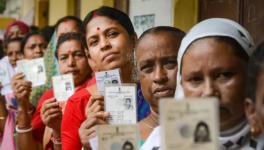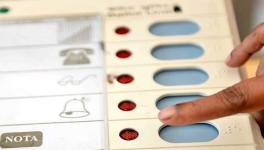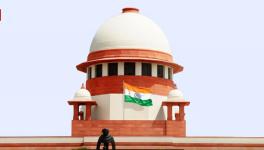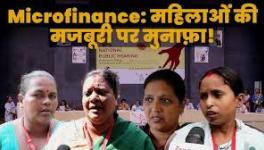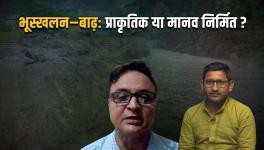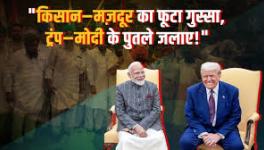Bihar SIR: 3 Lakh Voters Served ‘Doubtful Citizen’ Notices by Election Commission
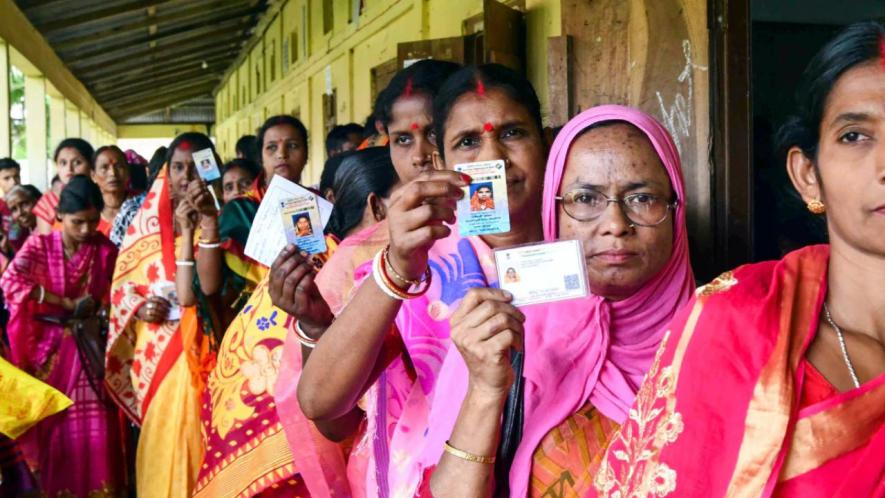
Image: PTI
The Election Commission of India (ECI), through its Special Intensive Revision (SIR) 2025, is preparing to delete nearly 3 lakh more electors names from Bihar’s electoral rolls — most of them flagged over “doubtful citizenship”. As per reports, the highest concentration of such notices is in Seemanchal, a politically sensitive, densely populated border region comprising Purnea, Araria, Kishanganj, Katihar, and Supaul.
A standard EC notice to affected voters states that inconsistencies in documents have raised “reasonable doubt” about their eligibility to remain on the electoral roll. Individuals have seven days to present original documents to avoid deletion — a deadline many fear they cannot meet. As per the Election Commission, the draft electoral roll released on August 1 includes 7.24 crore voters. These individuals have until September 1 to submit documents proving their eligibility, choosing from a list of 11 approved options provided by the EC.
Citizenship proof becomes central eligibility test
For the first time in decades, the revision is not merely checking age, address, or duplication — it requires proof of Indian citizenship, especially for those enrolled after 2003 or born after July 1, 1987.
The verification exercise has flagged individuals despite holding multiple valid Indian IDs like Aadhaar, ration cards, and domicile certificates. However, citizenship status, not document possession, is now the core criterion. Some individuals have been labelled as suspected nationals of Bangladesh, Nepal, Myanmar, or Afghanistan based on undocumented suspicions or familial ties.
65 lakh names already deleted in draft roll published on August 1
The EC’s draft voter list, released on August 1, showed a staggering 65 lakh deletions across Bihar. The reasons cited include death, migration, duplication, and untraceability. The fresh batch of 3 lakh names flagged under “doubtful citizenship” is over and above this earlier purge.
Simultaneously, the EC claims that 99.11% of electors have submitted documents for verifications. Adding further that the final rolls will be published on September 30, ahead of the likely November assembly polls, as per a report in the Times of India.
The Seemanchal region has emerged as the epicentre of this sweeping scrutiny. These districts, abutting international borders, are home to migrants, minorities, and people with historically ambiguous documentation, a legacy of partition, porous borders, and circular migration.
Discrepancies in documents were first observed by Electoral Registration Officers (EROs), followed by local inquiries before notices were issued.
What the notice states?
According to a report in the The Indian Express, the printed notice issued by the Electoral Registration Officers (EROs) does not cite any specific rule or legal provision. It simply states that it is a notice for the “verification of entries in the draft roll.” It mentions that the elector’s name was included in the draft roll based on the enumeration form and declaration.
“Lekin aapke dwara prastut dastavezo ke satyapan ke dauraan, aisa pratit hota hai ki aapke dwara prastut dastavezo mein visangatiya hai, jisse es vidhan sabha shetra mein matdata ke roop mein panjikrit hone ke aapke aadhikar par yathochit sandeh utpan hota hai (However, during the verification of the documents submitted by you, discrepancies were found that create reasonable doubt as to your right to be enrolled as an elector of this Assembly constituency),” one of the notice states.
With little access to legal aid, and many being illiterate or semi-literate, residents are struggling to understand or respond to EC directives. Booth Level Officers (BLOs) and Electoral Registration Officers (EROs) admit being overwhelmed.
Minimal response from major political parties
Despite the scale of potential disenfranchisement, political parties have shown limited engagement. Only 117 formal objections or claims have been filed in the past month — 108 by CPI-ML, and just 9 by RJD. No ruling or major national party has mounted a legal or political challenge.
Meanwhile, as of August 28, the ECI had received a total of 2,11,650 applications from individuals and political parties seeking inclusion or deletion of names from the draft rolls.
No tribunal, no appeal mechanism in Bihar
In Assam, voters marked ‘D’ (doubtful) are referred to Foreigners Tribunals (FTs) under the Foreigners Act, 1946, or its successor, the Foreigners Act, 2025. In Assam, laws mandated the formation of the FTs that have been since strongly critiqued for not functioning with a clear constitutional framework that follows the Indian law of evidence; in Bihar and the rest of India where the ECI has threatened to bring in the expanded SIR, there exists no law that mandates the formation of such Tribunals.
Sabrang India, in its July 9, 2025 report, made a strong apprehension that “The Centre appears to be engineering an Assam-like situation in Bihar — without legislative backing or procedural safeguards.”
The Assam precedent: a warning, not a model
In Assam, following an ECI order in 1998, thousands of individuals were marked as ‘D-voters’. Today, around 1.2 lakh people remain disenfranchised, still waiting for Foreigners Tribunals to rule on their status. The process has been slammed for being arbitrary, slow, and opaque, with no adherence to the Indian Evidence Act or constitutional protections.
If a similar path is followed in Bihar without any legislative oversight, lakhs may permanently lose the right to vote — not due to foreign origin, but due to bureaucratic misclassification and the absence of legal recourse.
SC allows online inclusion requests with Aadhaar, urges political parties to actively assist
On August 22, the Supreme Court issued key directions to address procedural and accessibility concerns in the electoral roll revision process. A Bench of Justices Surya Kant and Joymalya Bagchi ruled that electors excluded from the draft roll may submit inclusion applications online, along with a copy of their Aadhaar card.
The Court also directed all 12 recognised political parties in Bihar to activate their Booth Level Agents (BLAs) and assist citizens in filing claims and objections. Noting the lack of engagement, the Bench observed that “Although there are about 1.6 lakh Booth Level Agents of political parties, only two objections have come from them.”
Referring to the ECI’s submission, the Court highlighted that if all BLAs verify just 10 documents each day, 16 lakh verifications could be completed within 4–5 days, reinforcing the decision to retain the existing deadline.
Courtesy: Peoples Dispatch
Get the latest reports & analysis with people's perspective on Protests, movements & deep analytical videos, discussions of the current affairs in your Telegram app. Subscribe to NewsClick's Telegram channel & get Real-Time updates on stories, as they get published on our website.












